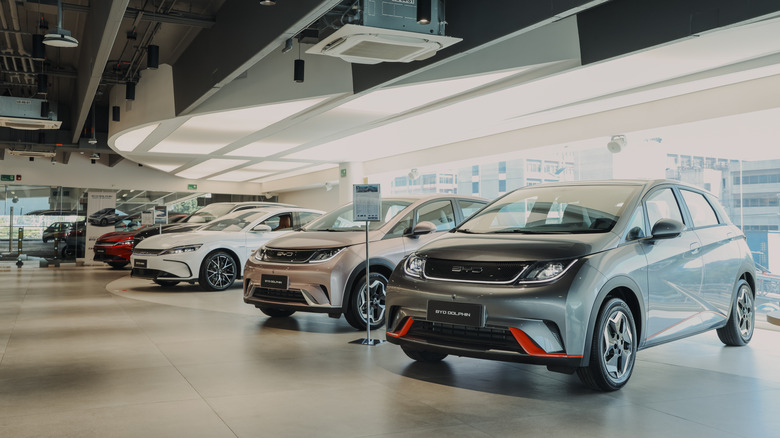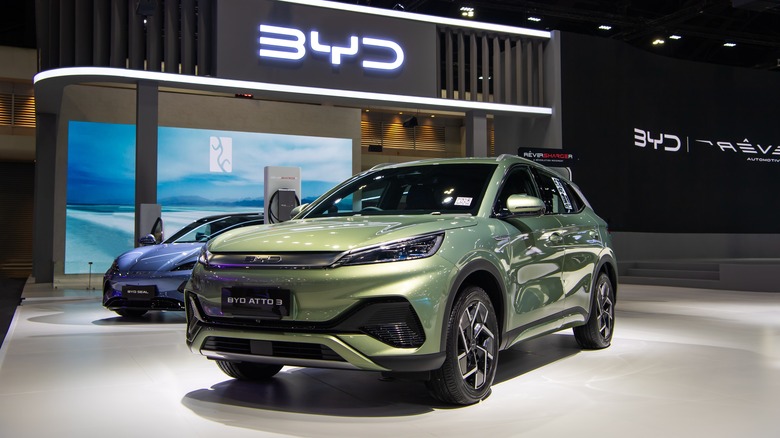Elon Musk Once Laughed At Them, But This EV Rival Is Set To Sour Tesla's 2024
In 2011, the mere mention of upstart Chinese EV company BYD (Build Your Dreams) elicited a chuckle from Elon Musk during a Bloomberg interview. For various reasons, most industry analysts and publications did not have a positive image of BYD. Primarily, the less-than-favorable view on BYD stemmed from the company's early EV cars looking like cheap knockoffs of gas-powered vehicles. Their quality was terrible, and the specs and range numbers were nothing to write home about.
Fast forward a decade, and in 2023, the Chinese automaker has evolved to not only become the biggest EV company in its home country but is on the verge of displacing Tesla as the world's most popular EV maker. BYD's meteoric rise has even led to Musk eating his words and publicly acknowledging the company as a serious rival that makes "highly competitive cars."
What do you think of BYD?
Elon Musk starts laughing... have you seen their cars ?
pic.twitter.com/aSvcqmOAo8— Tesla Owners Silicon Valley (@teslaownersSV) May 27, 2023
A glance at the latest sales reports and company filings reveals that BYD could ship more EVs than Tesla in the first quarter of 2024. If this is true, it would mark a major change in the dynamics of the global EV market and highlight the emergence of China and Chinese EV brands on the global stage. BYD's emergence has led to China overtaking established car-producing nations like the U.S., South Korea, and Germany, exporting more than 3.6 million vehicles by October 2023, 1.3 million of them EVs.
Strangely, despite all these huge numbers, BYD is still virtually unknown outside of China.
Local dominance to a global player
However, BYD's days as a little-known player in the EV space might just be coming to an end. It is now becoming increasingly clear that BYD is not a one-trick pony. The company is playing the long game, investing heavily in research, development, and battery technology to stay ahead of the curve. The company is also signing strategic partnerships with legacy automakers — including one with Toyota, further bolstering BYD's image as a mainstream brand and enhancing its technological know-how.
Making life more difficult for Tesla is that BYD focuses not just on passenger cars. BYD's electrification ambitions extend far and wide, encompassing buses, trucks, and even forklifts. This multi-pronged approach aligns with global sustainability goals and expands BYD's influence across various sectors, making it a ubiquitous presence in the electric mobility landscape, something Tesla can't boast of right now.
The biggest thing holding BYD back seems to be the brewing trade war between China and the U.S., which could make the company's U.S. prospects challenging. With Europe also looking to impose heavy tariffs on car imports from China, BYD might find it tougher to expand to markets in the West.
Despite these challenges, however, it would be interesting to see how the EV landscape changes as more Chinese EV makers join the fray and challenge the domination of Western companies in the EV space.

